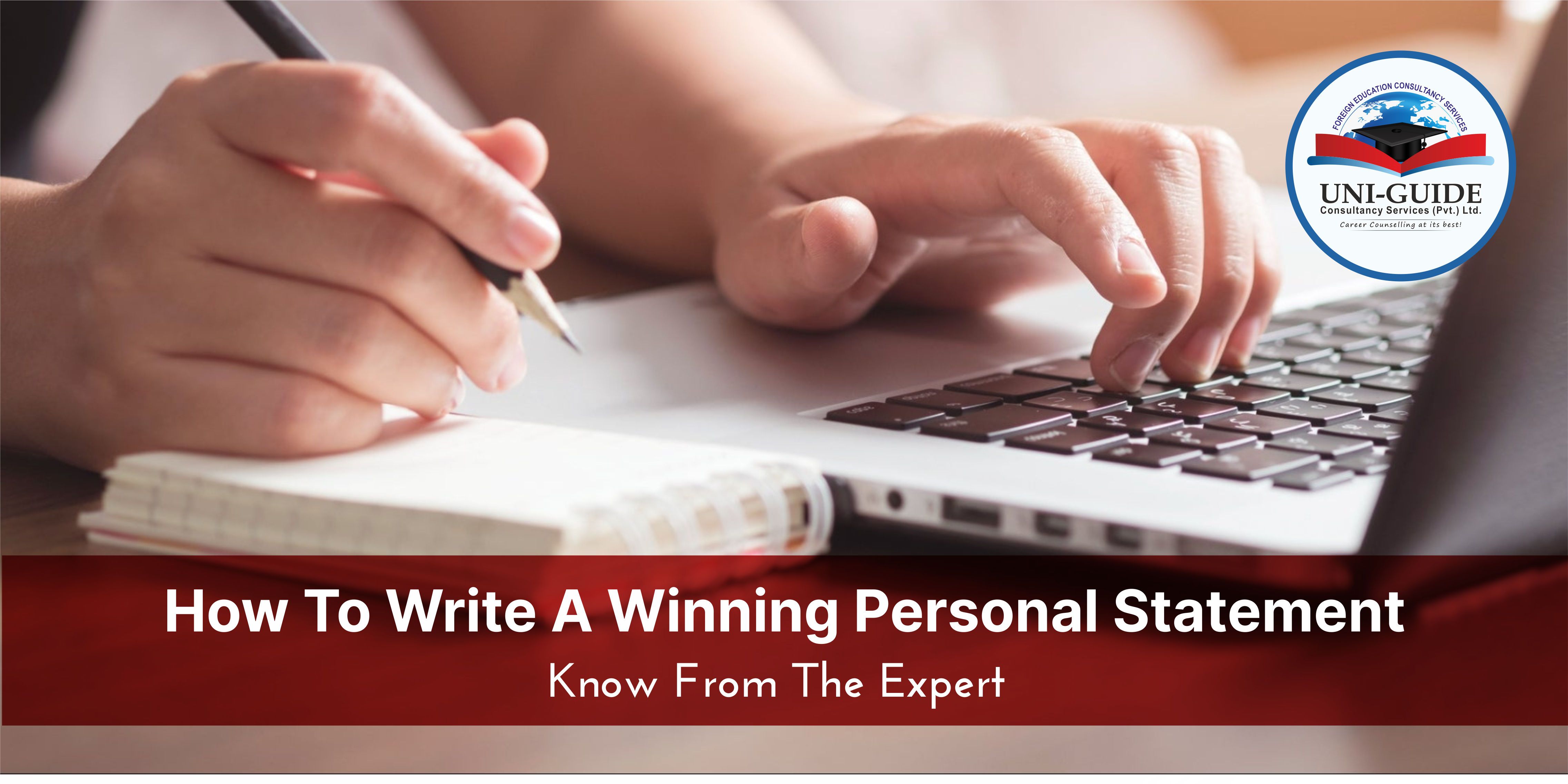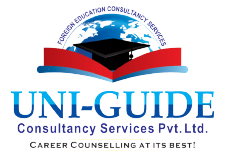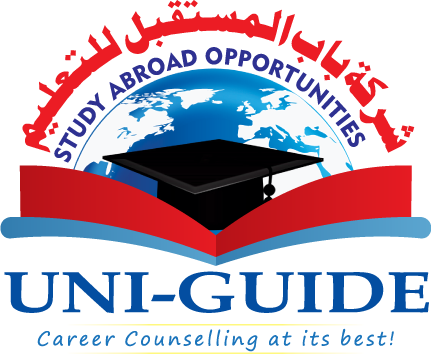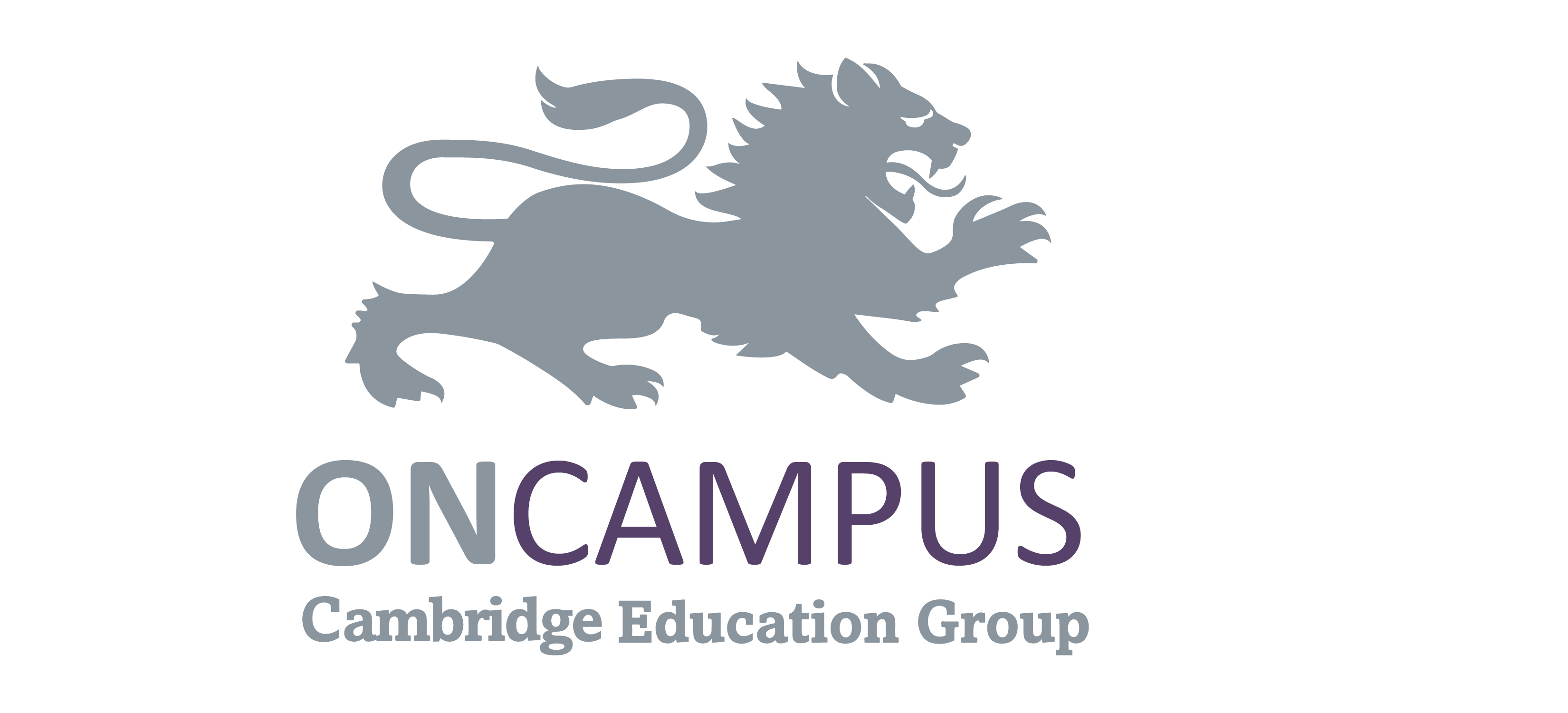- BY admin
- POSTED IN Blog, Study Guide
- WITH 0 COMMENTS
- PERMALINK
- STANDARD POST TYPE

A personal statement is a crucial document that can make or break your chances of getting into the university or college of your choice. It is not just about your grades and academic performance, but also about your passion, personality, skills and fit for the course you are applying for. You have to stand out from hundreds of other applicants who have similar qualifications as you.
That’s why we have compiled the 5 most essential and helpful tips for writing the best personal statements. These tips are based on our 10 years of experience as the leading and the best study abroad consultant in Lahore. So read carefully if you want to write a powerful personal statement for your university admission.
What is a personal statement?
A personal statement is a unique opportunity to showcase your personality and passion to the academic selection committee. It is not just a summary of your achievements, but a reflection of your goals, motivations, and fit for the discipline you are applying for. It contains engaging details about you and also demonstrates your interest and suitability for the program. A personal statement is more than just a document, it is a story of your journey and aspirations.
So what makes any personal statement attractive? There are two types of questions that you should ask yourself before writing a personal statement, the core and the periphery questions. Some of these questions are:
- What do you want to study at this institute?
- Why do you want to study this particular subject?
- What is there about you that shows you’re suited to studying this subject at university? Think about your personality, as well as your experiences.
- What are your other interests and skills that will make you the best fit?
Before you start writing anything make sure you have notes ready answering all these questions.
Tip 1: Start Early
A personal statement is a slowly simmering stew. It should be written with feelings and this is only possible when you have time. So plan, know the dates of all your target colleges and universities’ deadlines and start making notes of all the core and periphery questions for each institute. You would not want to send the same letter to every university you are interested in.
Starting early also allows you to revise, edit and polish your statement until it reflects your true voice and personality. You can ask for feedback from your teachers, friends or family members, but make sure you are the one who writes the final draft. This is only possible when you have plenty of time to edit, amend and incorporate feedback.
Tip 2: Every Draft Start With A Blank Sheet
Know that your first draft doesn’t have to be perfect. It is okay to sit in front of your laptop screen with a blank sheet of paper. That is where the magic happens. You have the freedom to explore your ideas, experiment with different styles, and express your voice.
You don’t need to worry about grammar, spelling, or structure at this stage. Just let your creativity flow and see where it takes you. You might surprise yourself with what you come up with. Remember, the first draft is for you, not for anyone else. It is your chance to discover what you want to say and how you want to say it.
This is also the time when you should bring out your notes and lay them down on your blank sheet.
Tip 3: Find The Perfect Opening Sentence.
Imagine you are a member of an admission committee who has to read hundreds of personal statements from aspiring students. How do you decide which ones to shortlist and which ones to reject? What makes a personal statement stand out from the rest?
As the best study visa consultant, we have processed thousands of cases and we know the answer: a perfect and engaging opening. A good opening is not just a summary of your qualifications and achievements, but a glimpse into your personality, your goals, your motivations, and your passions.
It shows why you are interested in the chosen field of study, what you can contribute to it, and how it aligns with your plans. It hooks the reader’s attention and makes them want to know more about you. In this article, we will share some tips and examples on how to craft a perfect and engaging opening for your personal statement.
Tip 4: It’s Okay To Use Writing Softwares For Help
It’s okay to make mistakes. No one is perfect with English grammar, but this doesn’t mean you have to either send a grammatically wrong personal statement or not send it at all.
You can take help from modern software to write and correct your mistakes in grammar, syntax, tenses and tones. Many tools are popular and you should use them while writing your draft.
Here are 2 open source software that you should install when you are writing your personal statement.
Grammarly: Best for making small corrections in grammar and even in your tone with aid account
Quillbot: Your perfect partner for crispy vocabulary that will help you make a good statement. However, don’t overdo it as your personal statement should look natural.
A personal statement is a chance to showcase your personality, achievements and goals to the admission committee. It should be creative, informative and engaging and that is only possible when you have the perfect and grammatically correct personal statement.
Tip 5: Get it checked and read it aloud
`
Now that you’ve put a lot of effort into writing your personal statement, don’t let it go to waste by submitting it without proofreading. Ask someone you trust, such as a teacher, a friend, or a family member, to read your statement and give you honest feedback. They might spot errors, inconsistencies, or gaps that you missed. They might also suggest ways to improve your structure, style, or tone. Speaking of tone, you want to sound confident, enthusiastic, and authentic in your personal statement.
A good way to check if your tone is appropriate is to read your statement aloud. Does it sound like you? Does it convey your passion and personality? Does it sound natural and engaging? If not, you might want to revise some parts until you’re happy with how it sounds.
Bonus Tip: Your Personal Statement should be honest and dependable
Now that we have covered all the important tips, you should be all set to start writing your first-person statement for your college or university. However, there is one critical detail that you should keep in mind: Your personal statement is your reflection, it should be honest. It should be written in a way that is dependable and justifiable in the interview.
Your personal statement is more than just a list of facts and achievements. It is a story that showcases your personality, your goals, and your passions. It is a chance to let the admissions committee know who you are as a person, not just as a student. Your personal statement should be honest, but also creative. You should use vivid examples, anecdotes, and metaphors to illustrate your points and make your statement memorable. You should also explain why you are interested in the program and how it aligns with your career aspirations.
Don’t want to write your statement or want to get it edited by experts? We at UNI GUIDE offer bespoke and personalised personal statement writing services. Our decade-long experience and qualified staff will help you stand out with an impactful statement of purpose that will land you in your chosen university.
So don’t wait and book your appointment with the best study visa consultants in Lahore today!








































